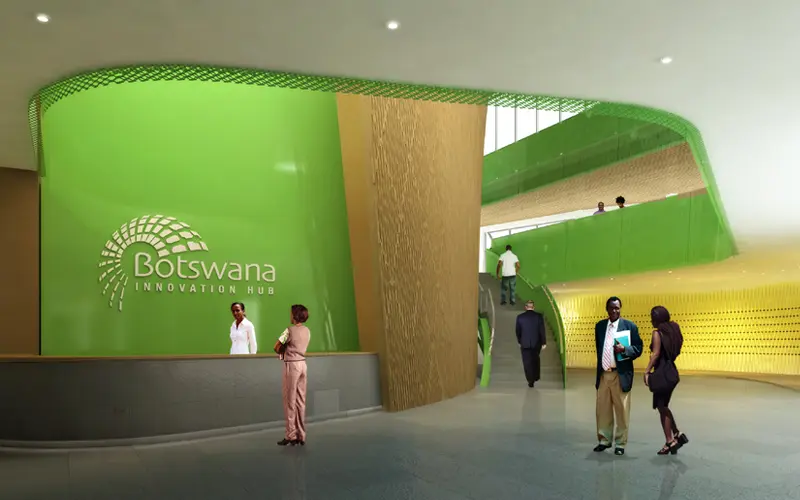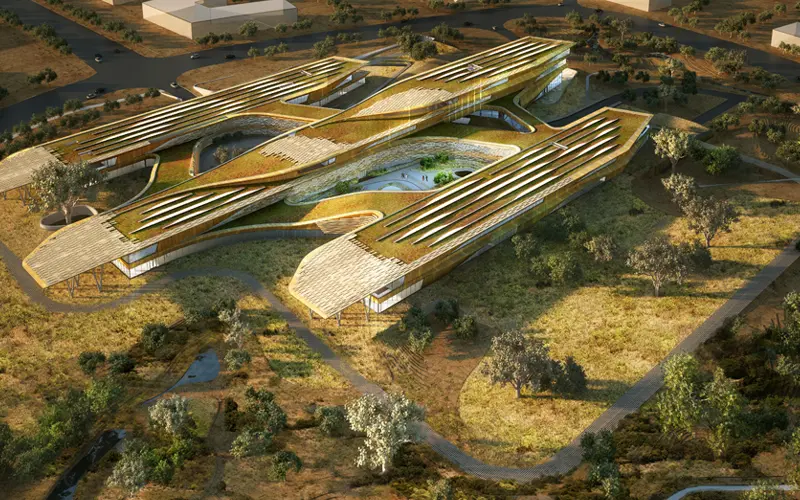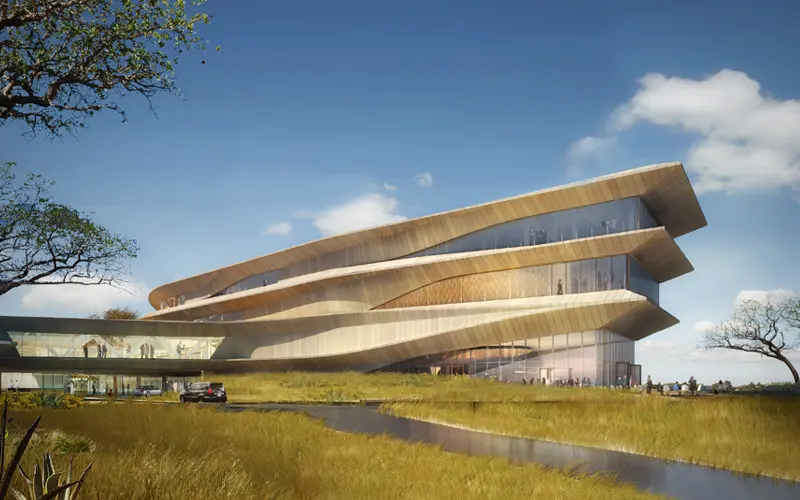Botswana, a nation often celebrated for its stable democracy and abundant natural resources, is rapidly emerging as a dynamic player in Africa's digital transformation. At the heart of this technological shift lies the Botswana Digital & Innovation Hub (BDIH), a pivotal institution designed to propel the country into a knowledge-based economy. More than just a collection of buildings, BDIH is a strategic national asset, fostering innovation, entrepreneurship, and digital literacy to secure Botswana's position as a regional leader in the Fourth Industrial Revolution.
BDIH: A Decade of Driving Innovation
Established in 2010 as a company limited by guarantee, BDIH operates under the auspices of the Ministry of Tertiary Education Research Science and Technology. Its inception marked a clear commitment from the Government of Botswana to diversify its economy and nurture an ecosystem conducive to technological advancement. From its very beginning, BDIH's vision has been ambitious: to be Africa's innovation leader, offering a unique platform for scientific, technological, and indigenous knowledge-based innovation.

The core objectives of the BDIH revolve around several key pillars:
- Developing and Managing a World-Class Science & Technology Park: The physical manifestation of this ambition, the BDIH Science & Technology Park in Gaborone, is designed to be a hub for technology-driven and knowledge-intensive businesses, providing advanced infrastructure and a collaborative environment.
- Attracting Innovative Companies and Institutions: Drawing both local and international players to foster a vibrant ecosystem.
- Fostering Commercialization of Innovations and Technology Transfer: Bridging the gap between ideas and market-ready solutions, and facilitating the adoption of new technologies.
- Contributing Towards National Competitiveness and Priorities: Aligning its efforts with Botswana's broader socio-economic development goals.
Cultivating an Innovation Ecosystem: Programs and Services
BDIH's multifaceted approach is evident in its diverse range of programs and services, meticulously crafted to support innovators at every stage:
1. Innovation Support Services:
BDIH acts as a catalyst for new ventures, offering:
- Incentive Registration: Guiding businesses through the process of accessing government incentives.
- Business Support Services: Providing essential advice and resources for budding enterprises.
- Intellectual Property (IP) Advisory Services: Protecting the valuable creations of innovators.
- Technology Entrepreneurship Development: Nurturing entrepreneurs from pre-incubation to acceleration, equipping them with the skills to scale their ventures.
- Strategic Partnership Collaborations: Facilitating connections that drive growth and knowledge exchange.
- Innovation Capacity Building: Enhancing the overall innovative capabilities within Botswana's workforce and research institutions.
2. State-of-the-Art Facilities & Infrastructure:
The BDIH Science & Technology Park offers:
- Commercial Office Space: Modern, adaptable workspaces for technology-focused companies.
- A Carrier-Neutral Data Centre: Providing robust and secure digital infrastructure, critical for data-intensive businesses and digital transformation.
- Land for Development: Opportunities for businesses to build their own bespoke facilities within the park.
3. Strategic Membership and Community Building:
BDIH fosters a vibrant community through its membership program, connecting innovators, businesses, and researchers, and facilitating crucial networking and collaboration opportunities.
Priority Sectors and Impactful Initiatives
BDIH strategically focuses its efforts on key sectors poised for significant growth and impact in Botswana:
- Mining Technologies: Driving research and development to enhance efficiency and sustainability in Botswana's cornerstone industry.
- Biotechnology (Agricultural and Health Technologies): Catalyzing innovation in food security, new product development, and health solutions, addressing critical national needs.
- Cleantech: Promoting sustainable practices, renewable energy, and environmental research to combat climate change and ensure resource efficiency.
- Information & Communications Technology (ICT): Enabling the development of innovative digital applications, products, and services, with an emphasis on emerging technologies like AI, blockchain, IoT, and big data.
- Indigenous Knowledge: Unlocking the commercial potential of traditional knowledge, particularly in alternative medicine and supplementary nutrition, respecting and leveraging Botswana's rich cultural heritage.
BDIH's tangible impact is demonstrated through initiatives like the Botswana Innovation Fund (BIF), which provides crucial seed funding for promising ventures. Furthermore, its partnerships with private sector giants like Dimension Data and Orange Botswana have facilitated the development of advanced data centers, significantly bolstering Botswana's digital infrastructure. Collaborations with organizations like Microsoft 4Afrika for youth skills development and the Southern Africa Innovation Support (SAIS) Programme underscore its commitment to regional and international knowledge exchange. The annual Innovation Botswana exposition serves as a flagship event, showcasing local ingenuity and fostering collaboration within the innovation ecosystem.
Leadership and the Path Forward
Under the leadership of Mr. Diane Mongudi, the Acting CEO, and a dedicated Board of Directors, BDIH continues to navigate the complexities of fostering innovation in a developing economy. Its organizational structure, comprising divisions such as Innovation & Technology, Property & Facilities Management, Marketing & Partnerships, and Strategy, ensures a holistic approach to its mandate.
The BDIH Corporate Strategy (2019-2024) outlines a clear path, emphasizing the acceleration of digital transformation through initiatives like crowdsourcing digitization and hackathon centers. However, BDIH operates within a national context that presents both opportunities and challenges. While Botswana is committed to its "SmartBots" digital transformation agenda, challenges such as high data costs, digital literacy and skills gaps, and disparities in connectivity persist. BDIH is strategically positioned to address these by:
- Championing digital literacy programs: Equipping citizens with the skills needed to thrive in a digital world.
- Supporting local tech startups: Providing a nurturing environment for new businesses that can drive down costs and create localized solutions.
- Collaborating on infrastructure development: Working with partners like BoFiNet and leveraging initiatives like the Starlink partnership to expand connectivity.
- Strengthening regulatory frameworks: Advocating for policies that encourage innovation and protect digital rights.
A notable recent development is the partnership between ESTDEV (Estonian Centre for International Development) and Expertise France, funded by the EU, to support digital development in Botswana. This collaboration, though not directly naming BDIH as the sole recipient, strongly aligns with BDIH's mandate and reinforces the international confidence in Botswana's digital aspirations. BDIH is poised to play a crucial role in leveraging such partnerships for the nation's benefit.
Personal Reflections and the African Context
Having followed Botswana's innovation journey, it's truly inspiring to witness the strategic foresight behind the BDIH. My reflections are as follows:
- A Model for Government-Led Innovation: BDIH stands as a testament to the power of deliberate government investment in technology and innovation. Unlike some countries where innovation is left purely to market forces, Botswana has actively created an enabling environment, recognizing that a robust digital economy requires foundational support. This top-down commitment, combined with bottom-up entrepreneurial spirit, is a powerful recipe for success.
- The Indigenous Knowledge Focus: A True Differentiator: The emphasis on commercializing indigenous knowledge is particularly commendable. In an increasingly globalized world, leveraging unique local assets and traditional wisdom offers Botswana a distinctive competitive advantage and fosters inclusive growth. This approach not only generates economic value but also preserves cultural heritage.
- Connectivity as a Cornerstone: The constant focus on enhancing connectivity and developing robust data infrastructure is critical. In the digital age, access to reliable, affordable internet is not a luxury but a fundamental human right and an economic imperative. BDIH's role in facilitating data centers and advocating for broader connectivity initiatives is crucial for empowering citizens and businesses alike.
- Addressing the Human Element: While infrastructure is vital, the focus on digital literacy and skills development is equally, if not more, important. The success of a digital economy ultimately rests on the capabilities of its people. BDIH's programs that nurture talent, from hackathons to entrepreneurship development, are investments in Botswana's most valuable resource.
In the broader African context, BDIH positions Botswana as a serious contender in the continental race for digital leadership. Many African nations are striving for digital transformation, but Botswana's approach stands out due to its:
- Structured and Centralized Approach: BDIH provides a clear, institutional framework for innovation, offering a single point of contact and dedicated resources, which can sometimes be fragmented in other regions.
- Emphasis on Public-Private Partnerships: BDIH's ability to forge strategic alliances with global tech giants and international development agencies demonstrates a pragmatic understanding that innovation thrives on collaboration.
- Commitment to the Fourth Industrial Revolution: By actively investing in emerging technologies like AI, IoT, and blockchain, Botswana is proactively preparing its economy for the future, rather than just reacting to current trends.
- Focus on Local Relevance: While embracing global technologies, BDIH ensures that innovation addresses local challenges and leverages indigenous strengths, creating solutions that are uniquely African.
The journey ahead for BDIH, and indeed for Botswana's digital future, will require continued agility, sustained investment, and a relentless focus on human capital development. However, the foundations laid by the Botswana Digital & Innovation Hub are solid, offering a compelling narrative of a nation determined to harness the power of technology for sustainable growth and to inspire a new generation of African innovators. The world, and particularly Africa, should watch Botswana's innovation horizon with keen interest.




